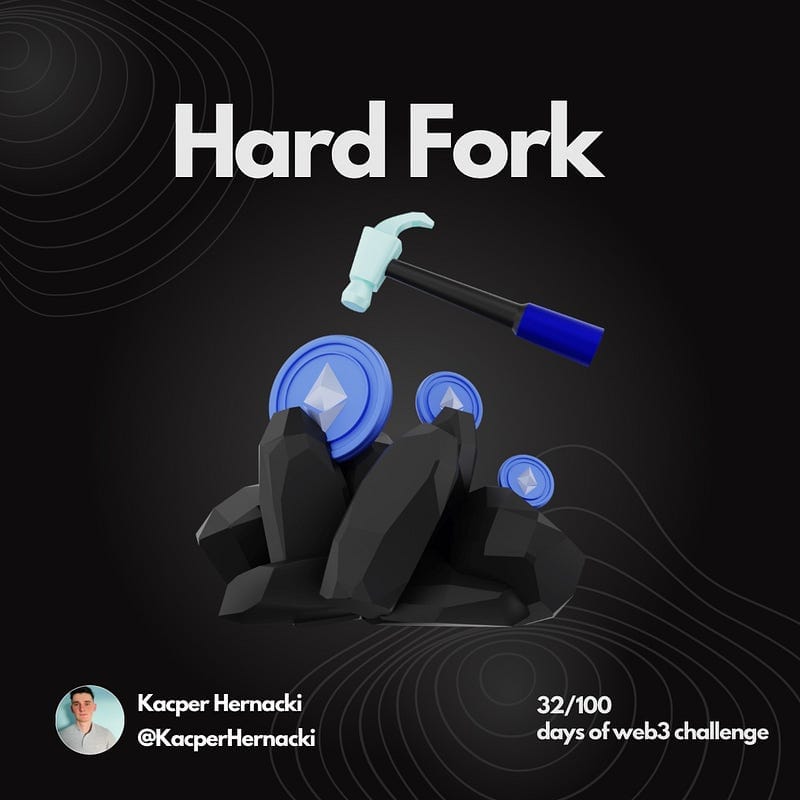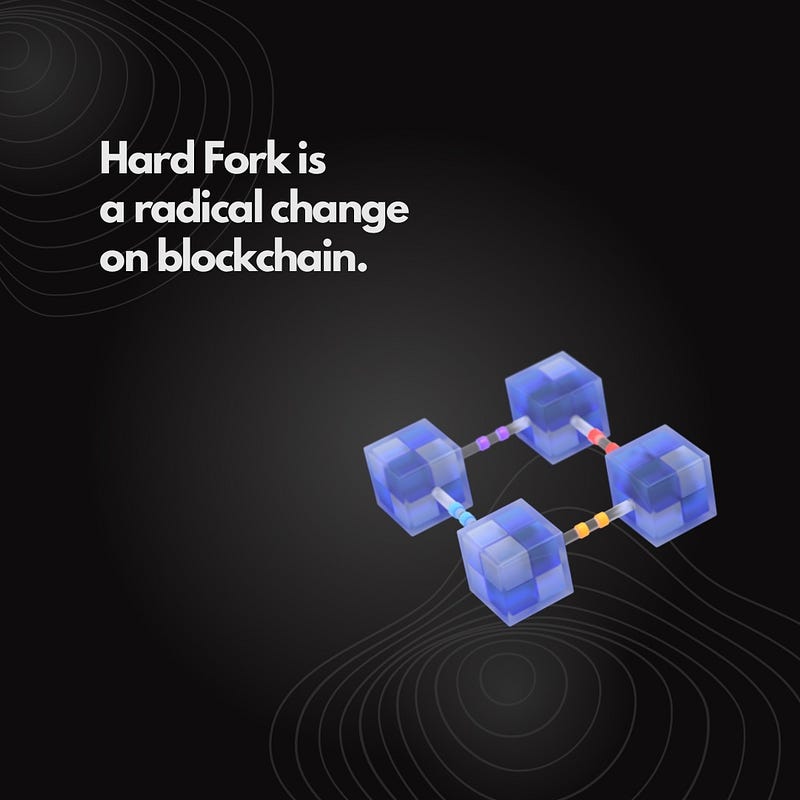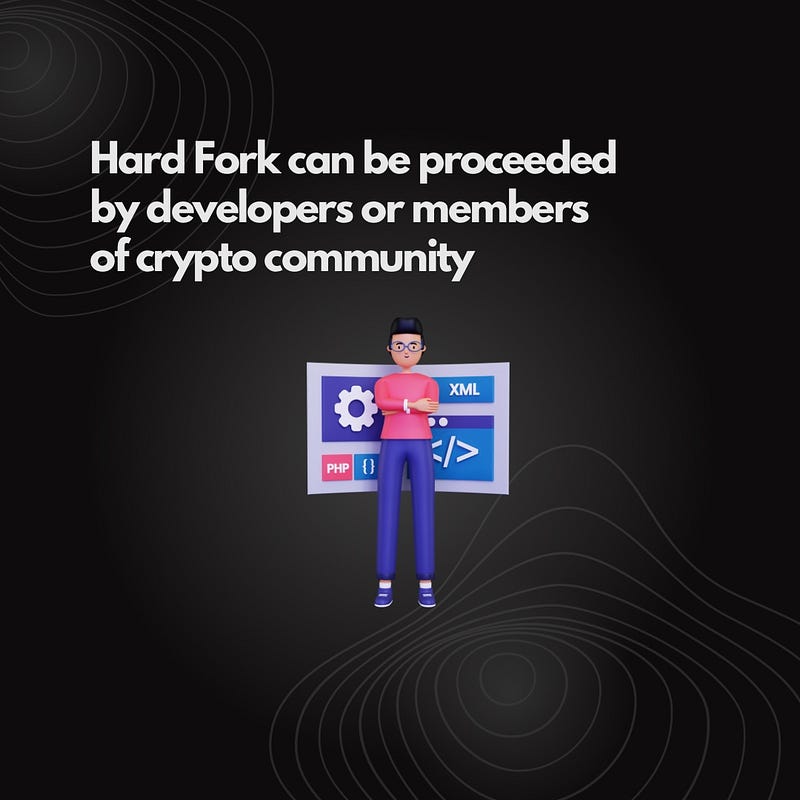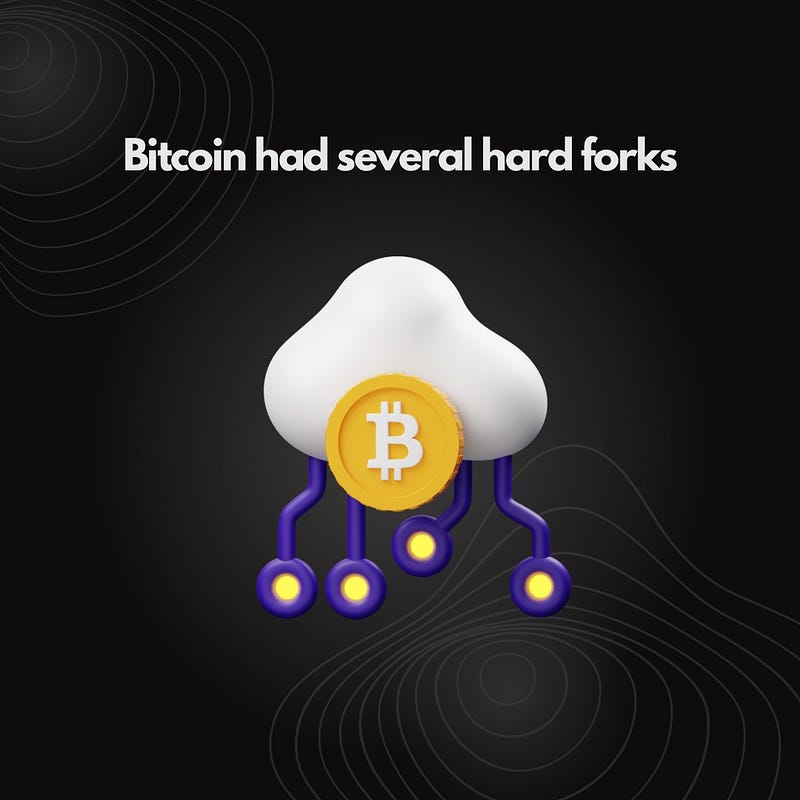Hard Fork — understanding basics of crypto world
According to Ethereum 2.0 event, there is announced term hard fork. By hard fork is meant practically entire event which Vitalik Buterin…

According to Ethereum 2.0 event, there is announced term hard fork. By hard fork is meant practically entire event which Vitalik Buterin scheduled for this year.
Agenda:
- Intro,
- Definition,
- How it works,
- Why to fork,
- Hard fork vs soft fork,
- Conclusion.
Definition
Hard fork is a radical change in blockchain protocol, which was approved by all nodes. This change is related with bigger functioning change, it means that new blocks can be mined with other consensus model, and despite this fact, they are valid.

What is worth of mentioning is that, hard fork requires from every node, storing the updated copy of blockchain software. It makes possible to function after changes without problems.
Moreover, hard fork can be proceeded by developers or members of crypto community, who wants to implement more functionalities than currently implemented.

It happened with Bitcoin several times, main purpose was to increase transactions pers second rate. More about bitcoin network can be found there:
How it works
Hard fork is made when all nodes do not accept old version of protocol, it creates a divergence between chains. Old one chain is going another way, updated chain is also towards in different direction.
Fork can occur through any blockchain network. Miners or validators have to agree with the changes to protocol, because they are responsible for functioning entire ecosystem. They only follow the rules which are established by protocol.
Changing protocol rules requires making a fork, like on a way, to indicate miners that there are changes. They can follow new chain or go with older one.
Due to forking Bitcoin, cryptocurrencies like Bitcoin Cash, Bitcoin Diamond appeared. It can be difficult for investors to catch differences, but miners understand it, so that they can follow the rules.

Why to fork
Hard forks are usually proceeded to implement better changes and new features. Mainly, it can be done to increase transactions per second, by increasing single block size or changing consensus model.
Taking Ethereum 2.0 as an example, it will have changed consensus model from proof of work to proof of stake. It should dramatically decrease fees and scale entire network.
More about proof of stake is included below:
Hard fork vs Soft fork
Hard and soft fork are basically the same with one difference. Hard fork creates two blockchains, soft is updating smaller changes and adapting to existing one.
Conclusion

Hard fork is a really demanded feature in blockchain. As blockchains are immutable, there always can be a need to implement some updates, forking it is extremely good.
Fortunately, all nodes have to approve changes, so that there are no situations like in centralized network, that some features are blocked, even if community loved that.
If you like my web3 content, follow my repo which consists all of the topics:





